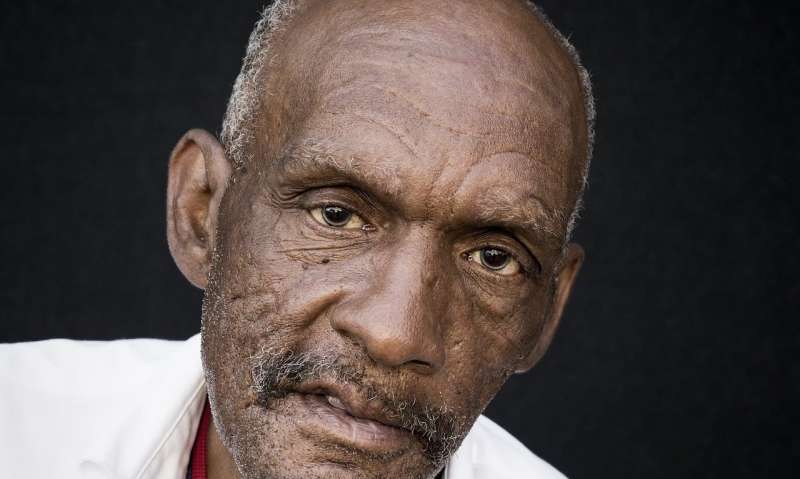This article has been reviewed according to Science X's editorial process and policies. Editors have highlighted the following attributes while ensuring the content's credibility:
fact-checked
trusted source
proofread
Aging in place: New study highlights racial disparities among older adults

Roughly 40% of older Black adults live with a disability, compared to only one-third of older adults overall.
Disability is one of various disparities highlighted in a new study, from the University of Michigan, which used data from the National Poll on Healthy Aging to examine the extent to which 50- to 80-year-olds were prepared to age in place and the racial and ethnic disparities that exist to that end.
The work is published in Geriatric Nursing.
Sheria Robinson-Lane, U-M assistant professor of nursing and principal investigator, said many of the disparities were related to "weathering"—stressors connected to environmental, economic or social factors that accelerate age. Researchers found that income, disability status and household composition emerged as factors that often negatively impact minority aging.
Robinson-Lane was struck by the high level of disability, especially among older African American adults. Multiracial respondents fared slightly better with 36% reporting a disability.
"I knew there was disability among older adults, but I guess I didn't really consider the extent of it," Robinson-Lane said. "So many communities are very inaccessible—I think that's what was so shocking to me. I think the main takeaway message is we need to create more accessible spaces. The population dynamics are shifting; there's not enough younger people to support the older adults that we have.
"We're waiting too long to start to make some of these critical changes to (guarantee) basic levels of accessibility within our communities and public spaces."
The study also suggests that rural Indigenous populations are the most prepared to age in place—a finding that challenges the conventional wisdom that the accessibility of city living over rural living is preferable for older adults.
Indigenous participants were the most confident that they could get the necessary help with daily living activities, and that their home had the necessary features to age in place—a claim seemingly substantiated by the presence of specific accessible home features.
Rural health outcomes often focus on white populations and exclude Indigenous peoples, even though they too often live in rural areas, Robinson-Lane said. The self-sufficiency reported by Indigenous participants is likely a combination of culture and community, she said.
"(There is) a long history of really having to sort of figure it out on their own, and to have to rely on community to get their needs met," Robinson-Lane said. "They're able to continue to do so as they age."
It's important to note that Indigenous people have one of the lowest life expectancies, so while they may be more prepared to age in place, they aren't living as long as white people, she said.
Asian, Black, Hispanic and multiracial respondents are more likely to belong to the "sandwich generation" and have one or more children living at home—another example of a weathering stressor, Robinson-Lane said.
Other findings:
- A quarter of all participants reported annual household income of $30,000 or less, compared to half of Black respondents.
- More than 25% reported living alone, with the highest proportion among Black (44%), Indigenous (40%), and multiracial (36%).
- 23% of participants had a housemate with a disability, compared to 36% of Black respondents and 34% of multiracial respondents.
- 21% of respondents rated their health fair or poor, compared to 37% of Black respondents.
The NPHA is a recurring national household survey of adults ages 50-80 that examines their experiences and perspectives on a variety of health topics.
More information: Sheria G. Robinson-Lane et al, Racial and ethnic variances in preparedness for aging in place among US adults ages 50–80, Geriatric Nursing (2023). DOI: 10.1016/j.gerinurse.2023.09.010





















